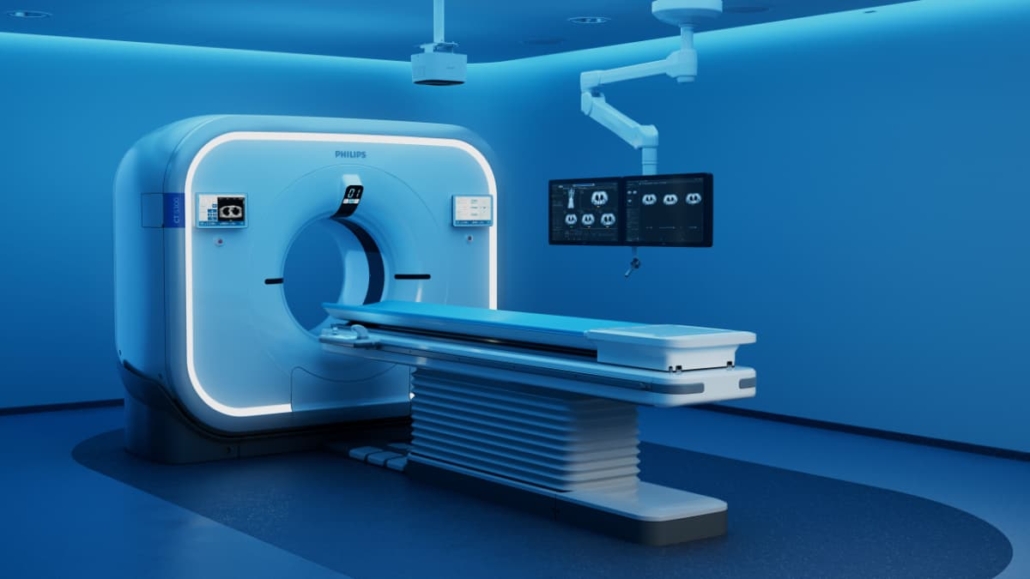Philips enhances clinical decision support with AI-driven CT workflow solutions
Royal Philips has announced significant improvements in clinical decision-support capabilities through artificial intelligence and workflow automation in their CT 5300 system. The system, which makes its North American debut at RSNA 2024, incorporates comprehensive AI-enabled ‘Precise’ software solutions designed to optimise the CT workflow process.
Technical specifications and improvements
The CT 5300 system integrates the NanoPanel Precise detector with ultra-low noise Precise Image reconstruction technology. The system’s Precise Image capabilities deliver image reconstruction with an 80% reduction in radiation dose, 85% lower noise levels, and 60% improved low-contrast detectability compared to conventional systems.
Workflow optimisation through AI integration
The system’s AI-driven smart workflow solutions include several key components:
- Precise Position: A camera-based system improving vertical positioning accuracy by up to 50% during scan preparation, whilst increasing user-to-user consistency by 70% and reducing positioning time by 23%.
- Precise Cardiac: Implements motion compensation algorithms to enhance coronary artery visualisation, even in tachycardic patients.
- Precise Brain: Provides automatic scan reformatting to optimise neurological imaging visualisation.
Integration with clinical systems
The CT 5300 integrates with Philips’ Advanced Visualisation Workspace, an AI-enabled image post-processing platform designed for scalability and comprehensive clinical applications. This integration aims to streamline radiology workflows whilst maintaining high-quality care standards and enhancing diagnostic confidence.
Emergency department triage enhancement
Philips has initiated a pilot programme with Annalise.ai to evaluate their Critical Care AI solution for emergency department triage support. This collaboration focuses on optimising workflows for time-critical conditions, particularly traumatic brain injury (TBI).
Regulatory status and clinical evidence
The Annalise Critical Care AI system has received FDA Breakthrough Device Designation and secured New Technology Add-on Payment (NTAP) status for obstructive hydrocephalus detection. Clinical data indicates the system can improve median report turnaround times by up to 39%.
International availability
For sites outside the United States, Philips is evaluating the Annalise Enterprise CTB solution, which offers detection capabilities for up to 130 radiological findings.
Dan Xu, CT Business Leader at Philips, emphasised the significance of these developments: “By equipping the CT 5300 with our unique NanoPanel Precise detector and ultra-low noise Precise Image reconstruction technology, together with our latest AI-driven CT Smart Workflow solutions, we are integrating hardware, software, and AI to make high-quality care more productive, cost-effective, and widely accessible.”
Annalise.ai’s co-founder and deputy CEO Dimitry Tran, commented: “This is an exciting time for radiology. Our solutions are designed to streamline workflows and boost productivity for radiology teams. Together with Philips, we look forward to making high-quality care truly accessible.”
The developments come at a crucial time when healthcare systems globally face shortages of skilled radiologists and technicians, with AI solutions potentially offering significant workflow improvements and enhanced diagnostic support.
- For more information, visit: www.usa.philips.com/healthcare


